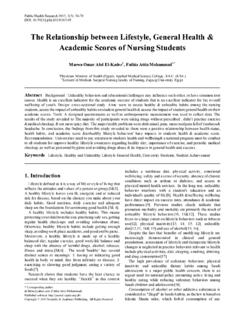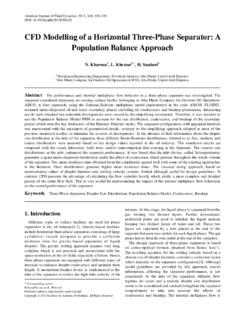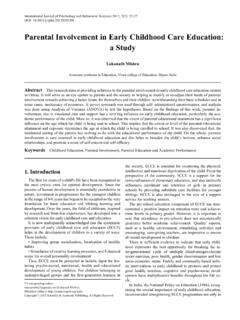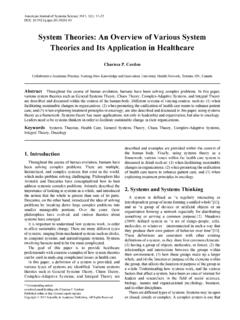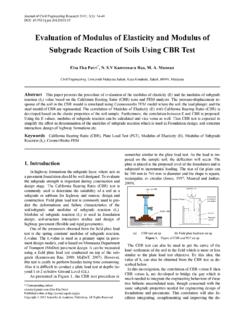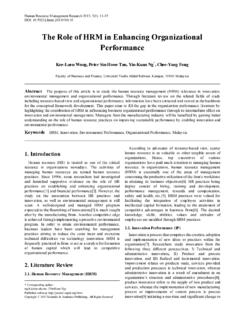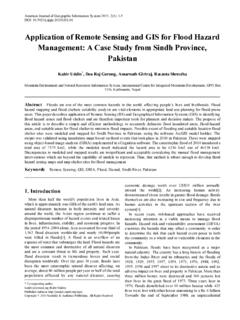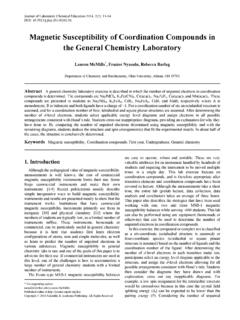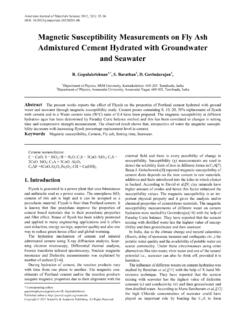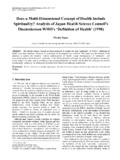Transcription of Clinical Teaching, Effective Clinical Instructor, Oman ...
1 International Journal of Nursing Science 2013, 3(2): 38-44 DOI: Undergraduate Nursing Students Perception of Effective Clinical instructor : Oman Giri ja K. M adhavanprabhak aran.*, Raghda K. Shukri., Jahara Hayudini., Sures h K. Narayanan College of Nursin g, Sultan Qaboos University, M uscat, Sultanate of Oman Abs t rac t C linica l instructors behaviors play a key role in learning process of students. This study explored the Effective clinica l instructors characteristics perceived important by Omani undergraduate nursing students of College of Nursing (CON) at Su ltan Qaboos University (SQU). Pe rmission fro m ethical and research co mmittee in the CON at SQU was obtained. A forty items questionnaire on a four point Likert- scale was administered to120 students of CON who were exposed to Clinical instructions at least for a year.
2 Data were co llected during the last two weeks of Clinical posting in the spring 2010, April 20th to May 5th. It was found that both male and female Omani nursing students rated professional competence of instructors as the most important characteristic and instructors relationship with students as the second most important characteristic without any discrepancy (p > ). Male and female students perceptions on instructors rel ationships with students was found to be significantly different (p < ). Objective evaluation, role modeling, Clinical competence and commun ication skills, respecting students indiv iduality were ranked as first five most Effective Clinical instructor characteristics. Students perceived 4:1 student- teacher ratio as the most optimal learning environment.
3 Th e s e results may assist faculty to appreciate students views and acknowledge the areas of success as well as areas that needs improvement. Ke y wo r ds Clin ical teaching , Effective Clin ical instructor , Oman Nursing Co llege 1. Introduction Nu rsing as a p ra ct ice d isc ip line , requ ires students to develop clin ical s kills th at are essential in caring. The dynamic process of clin ical instruction occurs in a variety of so cio-cultural contexts and the behavior of Clinical instructors play an important role in the learning process of students. Clinical instructors have the opportunity to greatly influence their students learn ing who eventually graduate and shape nursing practice. Clinical instructors must possess effect ive t eac h ing c ha ra cte rist ics such as p ro fessio n al kno wledge, ro le modeling and clin ical co mpetence with communicat ion skills to facilitate optima l clinica l learn ing.
4 Cu rrent p rocedures used to eva luate teach ing in h ea lt h- related instruction areas are generally student-b ased . Although peer and self-evaluation are in use, most Omani univers ities rely p rimarily on students evaluation when attempting to quantify an instructor s teaching effectiveness. Ev idence suggests that student ratings can be reliable and valid indicator of Effective teaching [1] . Despite the need for effect ive c lin ica l educat ion , the c rite ria fo r det ermin ing Effective Clinical teaching remains poorly defined[2] . * Corresponding author: (Girija K. Madhavanprabh akar an.) Published online at Copyright 2013 Scientific & Academic Publishing. All Rights Reserved Clear ly , there is an urgent and compelling need to gain better understanding of what constitutes Effective Clinical instruction.
5 Nursing students perception of Effective Clinical teacher behavior is an important indicator to modify and facilitate Effective c lin ical instruction. Sultan Qaboos University is the only government-funded university in Sultanate of Oman. The College of Nursing was founded in 2002 with an annual intake of 60 students, offering a baccalaureate degree in nursing and is the pioneer o f it s kind in Oman. Considering the prime importance of clin ical teaching in nursing, a 6:1 ratio of student-teacher has been imple mented e xcept in fina l se mester with advanced clin ical nursing course where, an individual preceptorship model was adopted. Clin ical teaching learning stands unique and is one among the credibility of this College of Nursing. So authors were interested to know which of the Clinical instructor characteristics are most beneficia l to the students clin ical lea rning and what are their opinions on best student- teacher ratio for a co mfortable learn ing environment.
6 This study explored the Effective clin ical instructor characteristics perceived important by Omani nursing students. 2. Background Clin ical train ing as the core of nursing education is v it al for the preparation of professional nurses. The quality of student - clinica l instructor interaction can either fac ilitate or International Journal of Nursing Science 2013, 3(2): 38-44 39 hinder the students learning in the clin ical area. Clinical teaching effectiveness is difficult to be evaluated in diverse, often fas t-paced and highly complex Clinical settings compared to mo re controlled environments such as seminars, laboratories and classrooms for theoretical teachings. Most researches on effectiveness of clinica l instructors have compared students and faculty perceptions of Effective clin ical teachers.
7 Though students and faculty differ on their views of most and least important characteristics of Effective clin ical instructors, overall they agree that the best Clinical teachers should have sound interpersonal skills, good at providing feedback, clinically co mpetent and know how to teach effectively. Previous studies demonstrated that there were differences in the perception on Effective Clinical instructor characteristic by students of different academic lev els[2, 3]. Evidence of good role modeling and mutual respect is widely accepted by the students. Heshmati-Nabavi Fate meh, Vana ki & Zohreh[4] determined the perceptions of Iranian nursing students and faculty me mbers towards effect ive clinica l educa t o r characteristics and they identified five key features of Effective c lin ical educators: (1) personal tra its; (2) me t a-cognition; (3) making Clinical learn ing enjoyable; (4) being a source of support; (5) being a role model.
8 The core variable profes s ional approach in clinica l education integrates these categories. They concluded that Effective clin ical educators are those who are in harmony with students and act as a role model for students and patients. The authors also concluded that the results are a direct result of the specific socio-cultural conditions of nursing profession in Iran a Middle East country with Islam as religion and have almost similar socio-cultural conditions of nursing profession like Oman. Kelly[5] explo red student s perception of Effective c linica l teaching over 14 years (1989-2003). During that period he aimed to co mpare perceptions of students in diplo ma and baccalaureate programs within existing Clinical contexts in a Canadian University.
9 He found that students are remarkably co n s is t ent and rated teachers knowledge as the most important characteristic followed by feedback and communication skills. Teacher s knowledge in Clinical settings, curriculu m, the learner and teaching /learn ing theory were considered critically impo rtant for being an Effective clinica l teacher. Johnson_Farmer and Frenn[6] presented at the 17th International Nu rsing Research Congress in Montreal and synthesized the findings fro m 17 nurse educators into a statement that teaching excellence is dynamic p rocess involving active engagement of students and faculty. The study recommended that faculty must be student-centered, knowledgeable, should use multiple teaching strategies which encourage all students into active questioning and learning through discovery.
10 Furthermore, facu lty should always clearly commun icate e xpectations and outcomes to students. In a descriptive, retrospective qualitative study on strength and weakness of faculty teaching performance over a period of 4 years fro m 1998- 2002 in a Univ ers it y , identified faculty being knowledgeable, strategic teacher with professionalis m, being supportive and creating positive learning environ ment with displaying of scholarly traits as faculty strength[7] . teaching and nursing co mpetence was rated as more important nurse educator competence than evaluation skills, personality factors and relationships with students in a quantitative descriptive correlation study by Johnson, et al[8] using nursing teacher questionnaire among 348 nurse educators in Norway.
